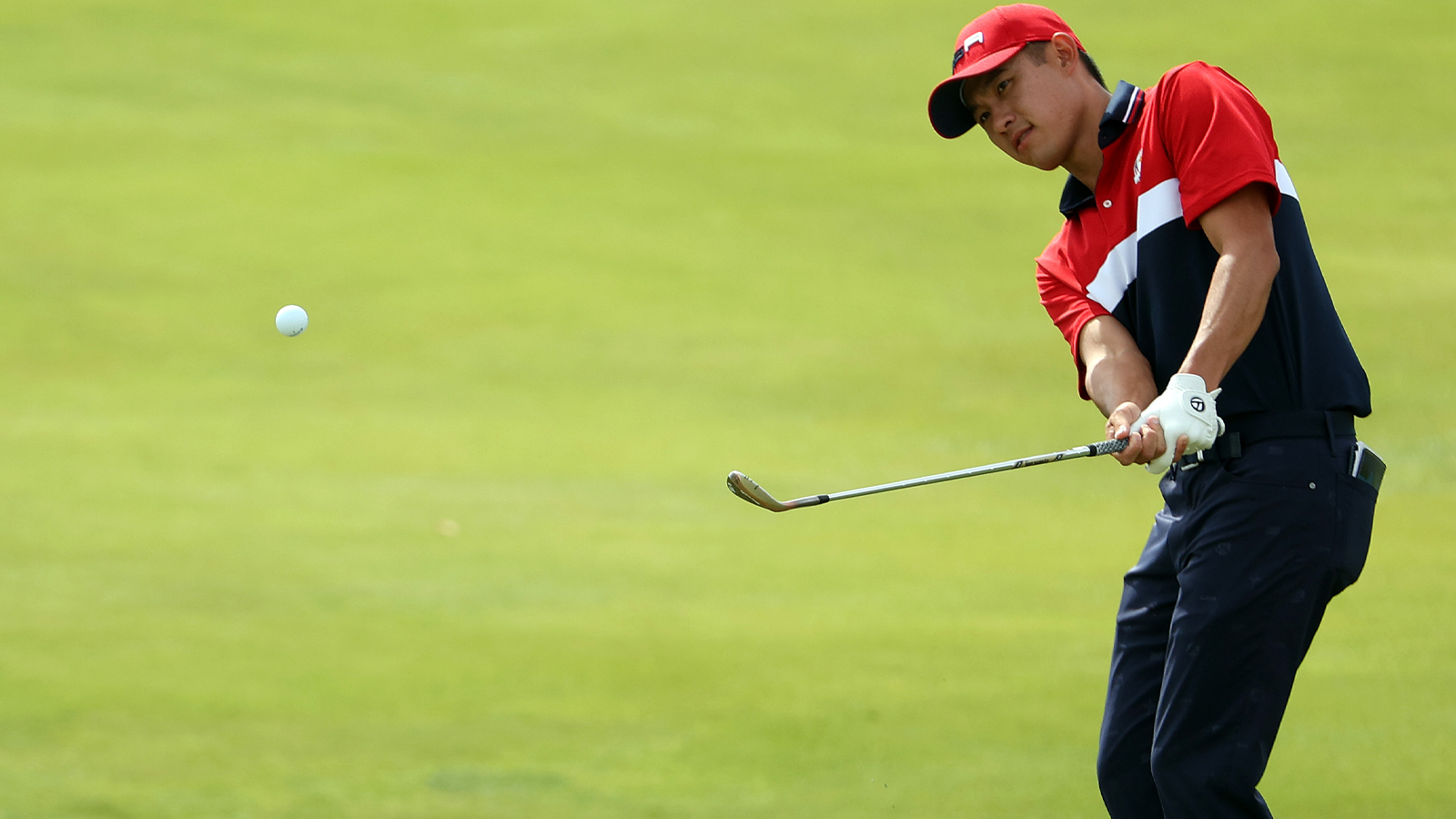Here’s what we cover:
My story originally appears on PGA.com on 11/16/21
It can’t be understated that the short game, which includes chipping, pitching and bunker play, is one of the most important areas of the game to become proficient in. These shots make up a large percentage of the total strokes taken during the course of a round. This is an area of the game, that with a little work, could help to lower your total score significantly.
Today I wanted to focus specifically on chipping.
The idea of a chip is to execute a shot that has more run than rise, meaning it gets on the ground quickly and rolls out to your target. In general, getting the ball on the ground and rolling, similar to what a putt would do, will allow you to control the distance a little bit more. You will generally want to use this shot when you are fairly close to the green but still have some turf that is slightly higher than green height to maneuver over.
Because the whole idea of a chip shot is to only get it up enough to carry a small distance in the air, and then roll out like a putt, it is suggested to experiment with and use a variety of different lofted clubs to accomplish this. The variation in the club chosen for a particular chip shot will depend on a few factors but most notably, the distance your ball is from the hole.
Many golfers tend to get stuck with using one or two clubs, usually their most lofted wedges, for executing a chip shot. In doing so, it is common to see shots that are hit heavy or thin…these outcomes are usually because of a combination of poor technique and a club with too much loft.
I suggest to any golfer to play around with using different clubs around the green. From as little loft as a hybrid or long iron and on through your entire bag to your wedges.
Remember, the idea is to basically hit the shot much like a putt….little rise and lots of roll.
Chipping Set Up
You will need to set your body up with the feet close together and ever so slightly open to your target line. Lean into your lead leg, with your weight distribution around 60% – 40% favoring that lead leg.
The ball will be positioned just back of center, and as I mentioned above, I advised to use a less lofted club such as a pitching wedge, 9, or 8 iron…or more should the situation call for it. Your hands and the club shaft will be ever so slightly ahead of the ball at address.
Chipping Motion
You will focus on moving the triangle that you create with your arms hanging down and your shoulders, much like you would in putting. Simply rock that triangle back and through at an even and consistent tempo.
Maintain the position of the hands and shaft as you had them at address (slightly ahead of the ball). No manipulation of your wrists or hands is needed. You must stay very steady with your body as it maintains that 60% – 40% weight distribution. There is very little body rotation, and you should focus mostly on the rocking of that triangle.
The length of the stroke, with its back and through motion, will be determined by the distance your ball is from the hole….just like with putting. Because you are only trying to fly the ball a very short distance, then rely on the forward roll after it lands, you will need to focus on a spot on the green that you want the ball to land. This takes practice, as well as experimentation with the various lofts from of the clubs in your bag.
Fight the urge to look up to see what the outcome is until a few seconds after impact. Looking up too early may cause the clubhead to move up as you look up and poor contact at impact will result.


